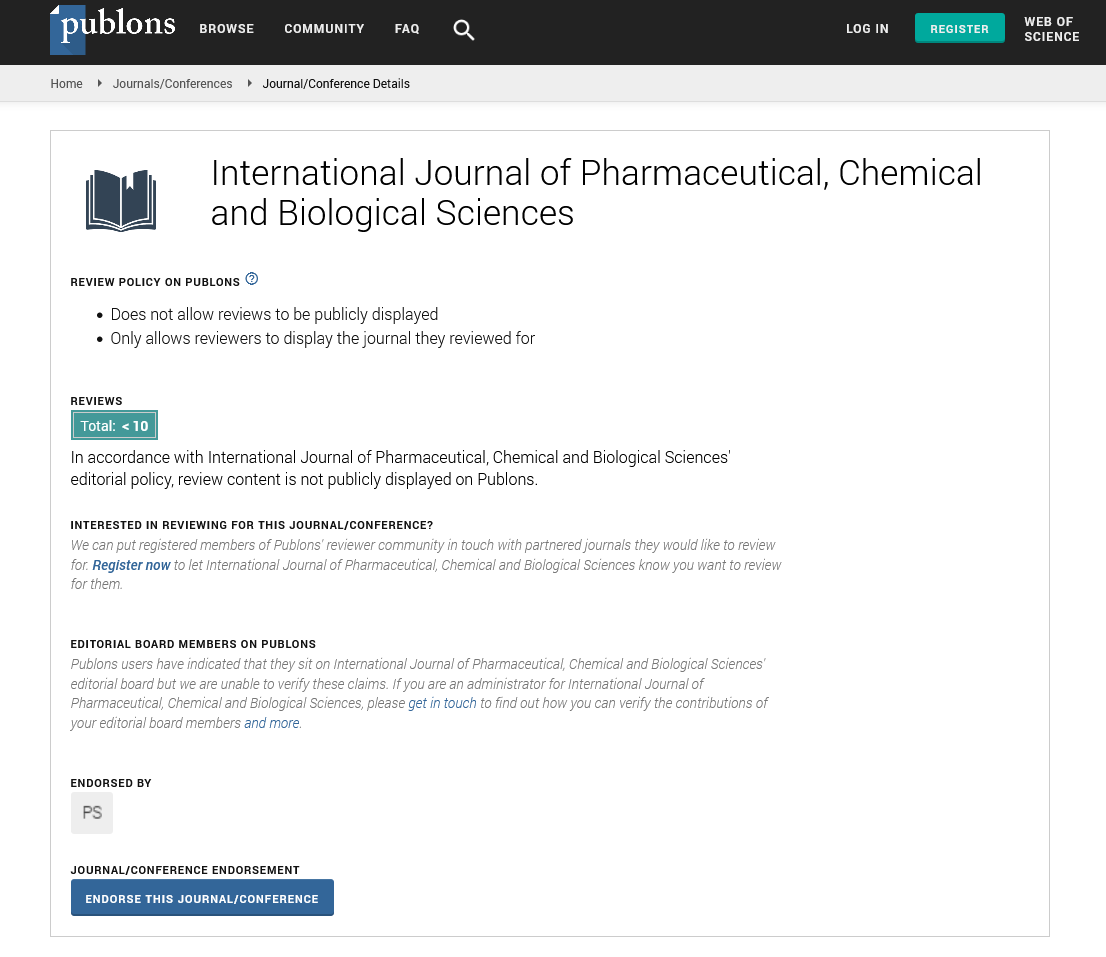Commentary - International Journal of Pharmaceutical, Chemical and Biological Sciences ( 2023) Volume 13, Issue 4
Toxicology: Navigating the Complex Science of Poisons and Chemicals
David Roy*David Roy, Department of Biomedical Science for Health, University of Milan, Italy,
Received: 29-Nov-2023, Manuscript No. ijpcbs-23-121817; Editor assigned: 01-Dec-2023, Pre QC No. ijpcbs-23-121817 (PQ); Reviewed: 15-Dec-2023, QC No. ijpcbs-23-121817; Revised: 20-Dec-2023, Manuscript No. ijpcbs-23-121817 (R); Published: 27-Dec-2023, DOI: 10.36648/2471-9668-13.4.4
Description
Toxicology, the study of poisons and the adverse effects of chemicals on living organisms, plays a pivotal role in safeguarding public health and the environment. This interdisciplinary field integrates knowledge from chemistry, biology, pharmacology, and environmental science to understand the mechanisms, interactions, and impact of toxic substances. This article aims to delve into the expansive realm of toxicology, exploring its core principles, methodologies, applications in various sectors, and its critical role in shaping regulations and public health policies. Toxicology investigates a wide array of toxic agents, including chemicals, pollutants, drugs, pesticides, heavy metals, and biological toxins. It explores how these substances interact with biological systems upon exposure, elucidating the mechanisms of toxicity and potential health risks. Central to toxicology is the concept of dose-response, which examines the relationship between the amount of a substance administered or encountered and the resulting biological response or adverse effect. This relationship helps determine the toxicity levels and establishes safe exposure limits. Toxic substances can enter the body through various routes, including ingestion, inhalation, dermal contact, and injection. Understanding the different pathways of exposure is crucial in assessing risks and devising strategies for prevention and mitigation. Toxicology studies the metabolic pathways of toxicants within the body, including how they are metabolized, transformed, and eliminated. Metabolism can either activate or detoxify substances, influencing their toxicity. Toxicologists employ both in vivo (studies conducted in living organisms) and in vitro (studies conducted in controlled laboratory environments, often using cell cultures) methodologies. In vivo studies provide insights into whole-body responses and systemic effects, while in vitro studies allow for controlled experiments to investigate specific mechanisms of toxicity. While controversial due to ethical concerns, animal models have historically been used in toxicology for understanding toxic effects and assessing the safety of substances before human exposure. Efforts are ongoing to develop alternative methods, such as cell cultures, organ-on-a-chip models, and computer simulations, to reduce reliance on animal testing. Advanced analytical techniques, including chromatography, mass spectrometry, and immunoassays, enable the detection, quantification, and characterization of toxic substances in biological samples and environmental matrices. These techniques aid in identifying potential hazards and assessing exposure levels. Toxicologists conduct risk assessments to evaluate potential hazards and determine safe exposure levels. Risk management strategies, including setting regulatory standards, implementing safety protocols, and developing mitigation measures, aim to minimize risks to human health and the environment. Toxicology plays a crucial role in public health by assessing the safety of consumer products, food additives, pharmaceuticals, and environmental pollutants. It helps in identifying and managing health risks associated with exposure to toxic substances, guiding regulatory agencies and policymakers in setting safety standards. In occupational settings, toxicology contributes to assessing workplace hazards, ensuring the safety of workers exposed to chemicals, and implementing measures to prevent occupational illnesses and injuries. Toxicologists study the impact of pollutants and contaminants on ecosystems, wildlife, and environmental health. They assess the ecological risks posed by chemicals and contribute to the development of environmental regulations and conservation efforts.
Acknowledgement
None.
Conflict Of Interest
None.

